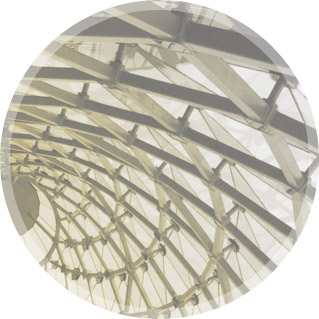University of Nevada, Las Vegas
School of Architecture
The School of Architecture seeks to inspire and educate future leaders in the design professions; leaders with design creativity, social responsibility, historical perspective, technical competence, and global awareness. The students, faculty, and staff constitute a creative and dynamic environment that is committed to improving the quality of life through integrative sustainable design. An interdisciplinary approach through programs in architecture, interior architecture and design, and landscape architecture along with strong connections to the professional community and participation within student organizations position graduates of the programs to be leaders in increasingly collaborative industries in an ever more connected world.
http://www.unlv.edu/architecture
Setting
Since its first classes were held on campus in 1957, UNLV has transformed itself from a small branch college into a thriving urban research institution. Along the way, the urban university has become an indispensable resource in one of the country's fastest-growing and most enterprising cities. UNLV was ranked the second most diverse campus in the nation in 2015. It has been in the top ten for diversity in each of the past five years. Students come from all over the world to engage one of the most exciting environments as a means of exploring critical issues in architecture today. The diversity extends into the built environment of the university and the surrounding context: The Strip, Fremont Street, the downtown, the arts district, suburbia, Mount Charleston, Lake Mead, Area 51, the Mojave Desert. The range of issues addressed by the built environment is vast. Rem Koolhaas, Zaha Hadid, Daniel Libeskind, Frank Gehry, and Antoine Predock among others have built projects throughout the valley, and site visits to many of these places constitute integral parts of the educational experience. Similarly, the aesthetic of Las Vegas is now exported to cities around the globe. The University setting is conducive to diverse areas of study, and its surroundings are indeed an extension of classrooms exploring critical issues in the twenty-first century.

Programs
Undergraduate Program: The undergraduate program in Architecture leads to the pre-professional degree of Bachelor of Science in Architecture. A common first year experience within the School of Architecture teaches design fundamentals applicable to the three disciplines of the School: architecture, landscape architecture, and interior architecture and design. Enrollment in 100-level courses is open to students admitted to the university, competitive GPA is required for enrollment in most 200-level classes, and a portfolio review/application process is required for students wishing to enter the upper-division or 300-400-level classes of the program. The program is designed to provide a broad, but rigorous design studio-based educational experience that is a prerequisite to graduate studies in architecture and subsequently fundamental to the professional practice of architecture. The pre-professional degree of Bachelor of Science in Architecture is desirable for those wishing a foundation in the field of architecture, as preparation for either continued education in a Masters of Architecture or other professional degree program or for employment in architecturally related areas. Graduate Program: The graduate program in architecture leads to the Master of Architecture professional degree. The program's diverse, creative, and scholarly activities are supported through concentration areas, sub-plans of the curriculum which cultivate focused study through developed learning communities comprised of electives, seminars, and studios or written theses in the areas of Hospitality Design, Building Systems and Sustainability, and Educational Facility Research and Design among others. Experiences in the program are enriched and broadened by the close interaction among the students already grounded in the liberal arts and the school's faculty that is comprised of international studio critics and theorists prominent across the breadth of the discipline of architecture. Instruction and research activities therefore are organized around design processes guided by theoretical and practical understanding of factors bearing on socially and environmentally responsible professional practice. The school's state-of-the-art technology support provides for various forms of communication inherent in such practices and affords students new ways to access knowledge, model buildings, and represent ideas. The requirements for the Master of Architecture degree, in terms of length of residency, number of credits, and specific courses vary according to a candidate's academic background. For applicants holding a Bachelor of Science in Architecture (B.S. Arch.), or its equivalent in curriculum content to the UNLV undergraduate program, the program offers a two-year degree path in the 4+2 program. The completion of 48 graduate credit hours is required to satisfy the degree requirements. For applicants with academic backgrounds outside of architecture or holding a Bachelor of Arts in Architecture, the program offers alternative paths through the 3-year plus degree program. The duration of the 3+ path varies based on an individual student's academic background and preparation. Each student applying for admission will be individually assessed and provided a course of study. Depending on academic experience, students may be required to take up to take up to 48 credits in preparatory coursework before enrolling in the 48 credits required in the 4+2 program.

of Focus
1. Building Technologies
2. Community Design
3. Design/Build
4. Digital Fabrication & Technology
5. Digital Design & Visualization
6. Industry Collaborations
7. Urbanism

Opportunities

Facilities

Policies
Transfer Policies
Transfer students applying for upper-division programs of the school from other institutions must submit the following to be considered for admission based upon faculty review:
– Portfolio of design work that demonstrates graphic skills, model-making skills, basic two- and three-dimensional composition, basic understanding of spatial organization, understanding of color, and basic site and handicap accessibility planning.
– Completed School of Architecture application for upper division, including documentation and description of community service and/or professional experience.
– A creative or research essay produced for any course or an essay as defined by the School of Architecture faculty annually.
– Letter of professional intent.
– Official transcripts from other institutions previously attended.
While the university accepts credits transferred from other accredited institutions, transfer credits are not applied to the School of Architecture programs until reviewed and accepted by this unit. Transfer credits for required program courses must be from NAAB-, CIDA-, or LAAB- accredited institutions. Transfer coursework must be equivalent in both content and level of offering. In addition, a faculty review of samples of work (or portfolio of work) from previous studio or laboratory classes is required.



